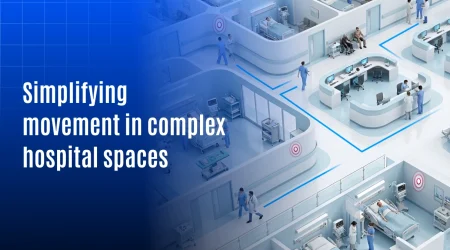7 Reasons Waste Management Fleets Are Adopting Trailer Tracking Software
In the waste management industry, trailers handle much of the heavy lifting. Yet without visibility, they become a blind spot leading to downtime, asset misuse, missed pickups, and rising operational costs that quietly drain productivity. For municipalities and private waste companies managing hundreds of trailers, these hidden losses add up fast.
That’s why the shift is accelerating. Fleet managers now realize that tracking the truck alone is no longer enough. Trailer tracking software is emerging as a must-have tool to streamline operations, reduce risks, and ensure compliance.
If you’re still relying on manual logs or basic tracking, your fleet is already falling behind.
Top benefits of using trailer tracking in waste management
1. Real-time visibility of your trailers
Knowing where every trailer is in real time changes the way waste fleets operate. With GPS-enabled trailer tracking software, managers can see trailer positions across depots, dump yards, and collection points. This real-time data reduces unnecessary calls between drivers and dispatchers, eliminates manual trailer logs, and boosts coordination.
Imagine a scenario where multiple trailers are delayed due to traffic. The live map helps dispatchers reroute pickups, optimize dispatch timing, and ensure SLAs are met.
Why it matters: Real-time visibility improves accountability, shortens response times, and helps ensure service commitments are delivered even when conditions change.
2. Theft prevention and asset security
Waste trailers are expensive assets, often left in remote, unsecured locations. Without proper monitoring, theft and unauthorized use become real risks. Trailer tracking software protects your fleet with geofence alerts, movement detection, and real-time notifications if a trailer is disconnected or moved unexpectedly.
Sensors like iButton or RFID, can even restrict who is allowed to operate or move specific trailers.
Why it matters: You prevent asset loss, reduce insurance claims, and improve overall fleet security with minimal manual oversight.
3. Improved trailer utilization
Not knowing which trailers are underutilized leads to unnecessary purchases and rising overhead. With a trailer management system, you get visibility into how often each trailer is used, how long it stays idle, and what routes it serves.
For instance, if five trailers have been sitting unused for over 48 hours at a depot, managers can reassign them to high-demand zones or schedule them for maintenance.
Why it matters: You save on capex, maximize the use of what you already own, and avoid overloading or underusing specific assets.
4. Preventive maintenance made easy
Breakdowns mid-route delay service and frustrate customers. A good trailer tracking solution helps you implement a preventive maintenance schedule. You can track mileage, load cycles, or operational hours to trigger maintenance reminders before failures occur.
Over time, this helps you predict wear patterns, reduce emergency repairs, and extend trailer life.
Why it matters: Less downtime, fewer emergency service calls, and safer trailers on the road all while lowering maintenance costs.
5. Multi-depot management simplified
Coordinating waste operations across multiple depots can be challenging. Trailer tracking software simplifies this by grouping trailers by their role or location, enabling smoother dispatches and better region-wise performance analysis.
For example, managers in Delhi and Mumbai can track and optimize their respective fleets independently, yet view consolidated data from one dashboard.
Why it matters: It improves coordination between depots, simplifies decision-making, and ensures region-wise accountability across the fleet.
6. Compliance and reporting support
Waste handling regulations are becoming more strict, especially around asset tracking, route logging, and trip validation. However, Trailer tracking software automatically logs trip history, usage reports, and geolocation data making it easier to prove compliance during audits or tenders.
This not only protects you from penalties but also strengthens your credibility when bidding for large-scale municipal contracts.
Why it matters: It keeps your fleet compliant without additional manual work, and strengthens your ability to meet local and environmental regulations.
7. Smarter, data-driven decisions
As a result, trailer tracking shifts your operations from assumptions to data-driven insights. It reveals usage trends, delays, regional performance, and driver inefficiencies.
Over time, this helps fleet managers optimize routes, balance trailer workloads, and make cost-saving decisions based on solid data.
Why it matters: Smarter decisions lead to higher profits, better resource planning, and long-term growth for waste fleet operators.
Bonus: Enhance customer transparency and trust
Some commercial waste clients demand visibility into pickups, delays, or trailer status.
- By provide real-time tracking links or automated updates through your trailer tracking software.
- Additionally build stronger relationships with municipal clients or industrial partners.
Why it matters: Transparency leads to better contracts, higher client retention, and a stronger reputation.
Summary: Trailer tracking is the future of waste logistics
As waste operations grow more complex, untracked trailers have become a major risk to efficiency and profitability. Adopting a trailer tracking solution supported by a robust management system is no longer optional, but essential. Whether managing urban or industrial waste, the outcome is the same: greater visibility, reduced downtime, and tighter operational control.


